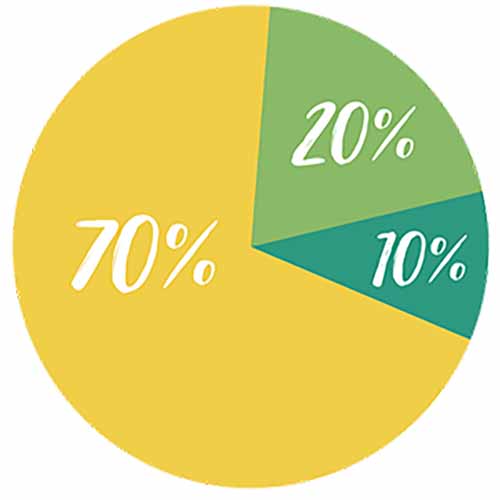Communicating and Building Relationships

Communicating and building relationships is about communicating effectively with the team so they feel well informed and connected through the use of team meetings and 1:1s. It is about providing an open ear to listen to others’ views and ideas, and is accessible to the team maintaining high levels of visibility.
Behavioural Statements
- I share information with individuals and my team/group and keep them well informed.
- I hold regular team/ group meetings and ensure everyone has an opportunity to contribute.
- I actively listen to others and am receptive to their ideas.
- I maintain high visibility and levels of personal contact with individuals and my team/ group.
- I take additional steps when managing remotely to improve communication, relationships and performance.
Example of on-the-job development activities (70)
For a change or project currently happening in your team, develop a communications plan considering how you will ensure your team are kept informed. Think about different ways of communicating and selecting the right approach for the message.
Make a conscious effort to notice how others contribute in your meetings. Are you doing all the talking or are others able to share?
Think about someone you work with who is very effective at leading collaborative and productive meetings. Notice their approach and what they do. Make a note of this and try to replicate their approach in your own meetings.
Find opportunities for discussions on ideas with your team. Don’t knock back any idea immediately, be open to discussions about new ways of doing things.
Consider the various touch points you have with different members of your team during a typical week. Reflect on your level of visibility with different groups and consider where there may be gaps where more contact is needed.
Find opportunities to speak with members of your team individually and collectively, about how about working remotely; what’s working well, what can be improved, any frustrations they have, how they could be supported.
Example of social and peer learning activities (20)
Involve yourself in the internal meetings of other relevant teams. Be curious as to their ways of working. Review against your own team culture and adapt and learn from contrasting approaches.
Make a conscious effort to notice how others contribute in your meetings. Are you doing all the talking or are others able to share?
Become a coach so you can practice the skills of guiding rather than advising. Using listening and questioning skills to move the person from discussion to action.
Arrange a ‘back to the floor’ visit once a quarter. Keep in touch with what is going on, asking questions about how tasks, processes, systems are working in reality. Get your team involved in solutions where problems are identified.
Arrange Action Learning Sets on a regular basis to review problems, blockers, challenges, issues. Ask a colleague to facilitate the sessions for you and your team, so you can use your listening and questioning skills to help the group move from discussion to action.
Recommended Learning Resources (10)
Open communication (LinkedIn)
Establishing an open door policy (LinkedIn)
10 ways to have a better conversation (YouTube)
Communicating remotely (LinkedIn video)
Suggested reflection / discussion questions
How can you measure, how well you communicate and build effective relationships?
How can you ensure everyone has contributed to your meetings and the actions as shared equally across the team for both the process and outcomes?
What improvements could you make this month, week or today to continually improve your ability to listen and be receptive to your teams' ideas?
Do you or your team waste time re-doing the same tasks? If yes, what is the impact? How can you work SMARTER not HARDER?
When’s the last time you let staff take ownership of improvement decisions?

